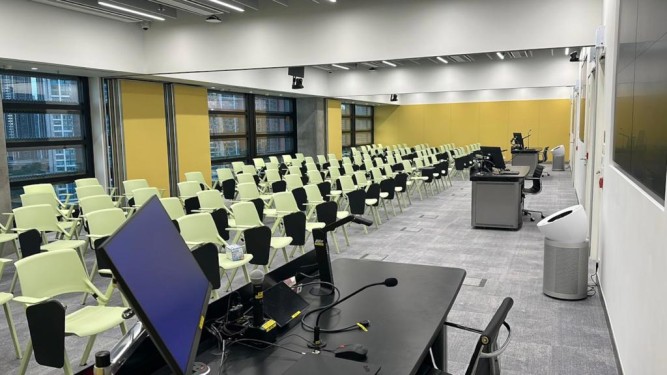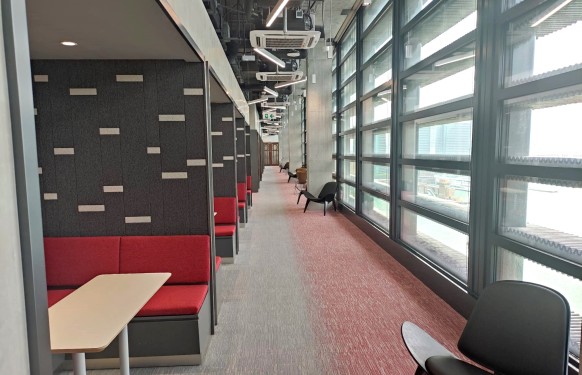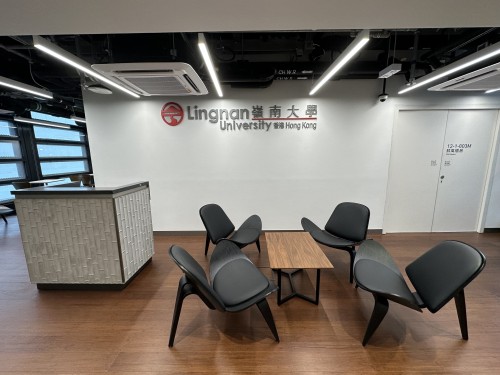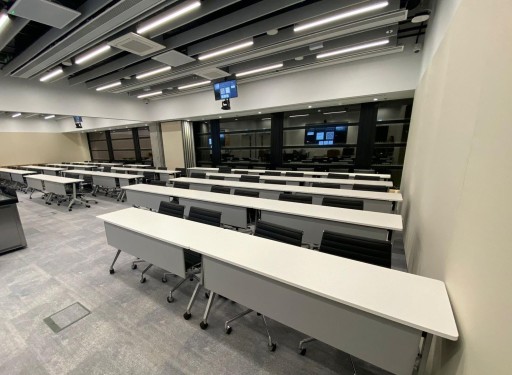Our President
Professor S. Joe Qin
President and Wai Kee Kau Chair Professor of Data Science
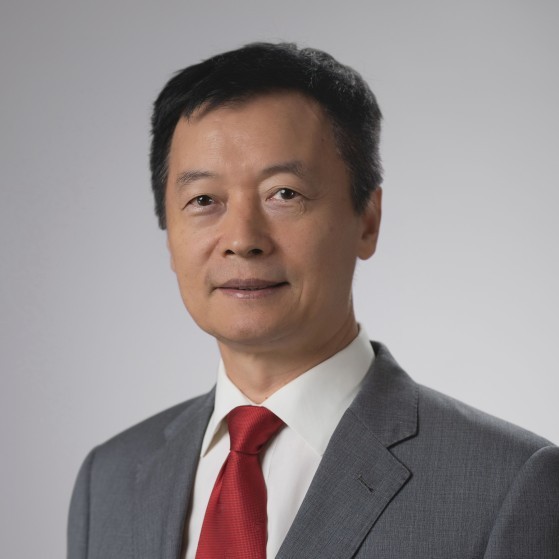
22 Feb 2024
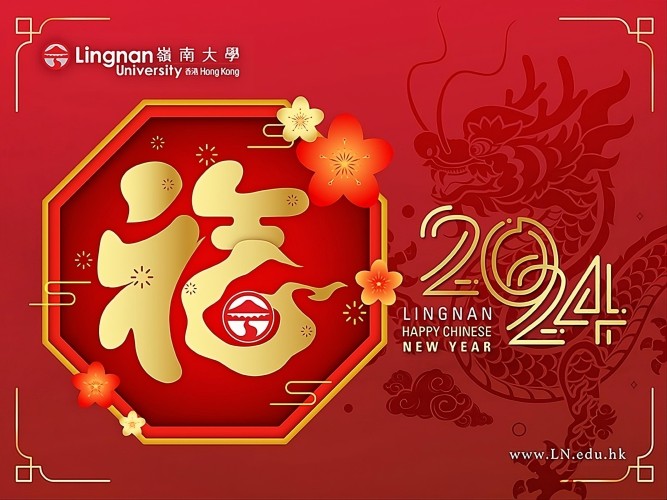
Dear Lingnanians,
I am pleased to present the State of the University address, which I delivered during our Staff Communication Day & Staff Party 2024, held on 15 February 2024. While we welcomed the Year of the Dragon with open arms and celebrated our achievements, it was also a moment to reflect on our shared journey and to look forward to the opportunities that lie ahead for our university community.
Welcome to our Staff Communication Day & Staff Party 2024! I am delighted to join this celebration with all of you, and I hope the Year of Dragon will bring you the best of luck and good fortune. Today, we come together as a united staff community that strengthens our bonds. This gathering not only serves as a time for celebration but also allows us to share important updates regarding the development and progress of our university.
Over the last year, I am honored to have become a member of the Lingnan family since July 1. I am very pleased to receive your support on aligning us towards a leading liberal arts research university in the digital age. We have moved superfast in nearly every front along this direction, which has attracted much attention and praises from the community. Our Council, Court, alumni, and other Lingnan stakeholders are more than ever supportive of our initiatives. It is no surprise that we have made groundbreaking progress and record-highs in a short time. Please allow me to review some of them together with you.
1. The Passage of the Lingnan University (Amendment) Ordinance 2023
The passage of the Lingnan University (Amendment) Ordinance 2023 by the Legislative Council in June 2023 has filled me with great delight. The new Ordinance allows the appointment of up to three Vice-Presidents, enabling us to build a robust team that will facilitate stronger collaborations with our local, mainland, and international partners. I am very pleased to report that Prof. Xin Yao has joined us as Vice-President for Research and Innovation under this new Ordinance. Prof. Yao is not only an achieved administrator, but also an astonishing scholar. He is the only ethic Chinese who has ever received the prestigious IEEE Frank Rosenblatt Award in Machine Learning.
2. Successful Recruiting and Retention
In last August, we welcomed just over 100 new teaching and/or research staff members. In the recent release of faculty retention data by UGC, Lingnan has the best retention record among all public institutions. We have successfully recruited members for the top management and administration, including VP Prof. Yao, AVP Prof. Kwong, Dean of SIS Prof. Xi Chen, Director of Campus Development and Management Mr. Dennis Wong, and Director of OGE Dr. Simon Xu.
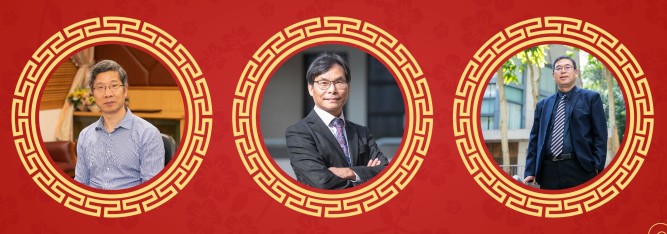
3. Ground-breaking Honors and Rankings
Lingnan has excelled in receiving high rankings in the world. Last year, the Times Higher Education, or THE, ranked us the second in the world in Quality Education as one of the SDG goals set by the United Nations. The QS ranked us five stars + in the global five-star rankings, the highest ever.
As a highlight of our student recruitment success, we received the THE Awards Asia 2023 for “Student Recruitment of the Year”.
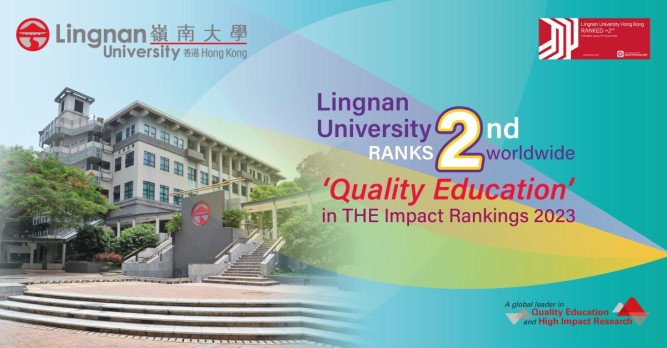
Our Animation and Digital Arts program in the Faculty of Arts was the hottest major in HK among all institutions, amassing a 40:1 ratio just for Band-A applicants. Our UG graduates last year enjoyed 9.8% increase in starting salary over the previous year.
Regarding JUPAS application for the coming year, Lingnan University ranks 2nd among the 8 UGC-funded institutions in percent increase of total applicants and ranks the 1st in percent increase of Band A applicants, that is, over 13%! We are working hard to convert them to Lingnan’s top enrolments.
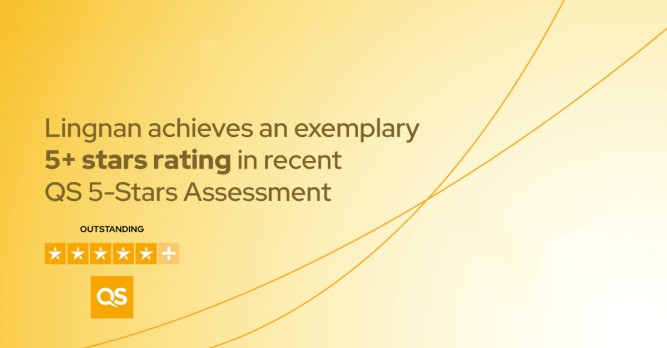
Our faculty has brought ground-breaking honors to Lingnan as well, all ground-breaking.
As of today, we have 17 colleagues who are among the top 2% scholars in the world ranked by Stanford University. Our ‘top 2% scholars’ are represented by many different fields of study, not just engineering or science.
In addition, Lingnan has recorded two world most-cited scholars ranked by Clarivate, who are Profs. Sam Kwong and Xin Yao.
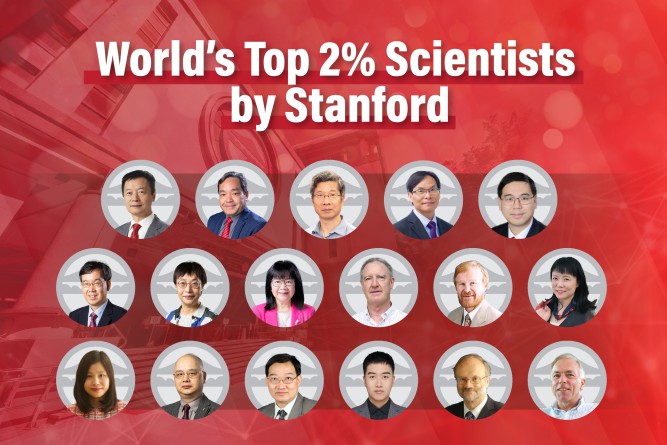
Member of the European Academy of Sciences and ArtsIn December 2023, I am deeply humbled to be elected as a member of the European Academy of Sciences and Arts, an institution comprising over 2,000 distinguished scholars and practitioners, including 32 Nobel Prize laureates.
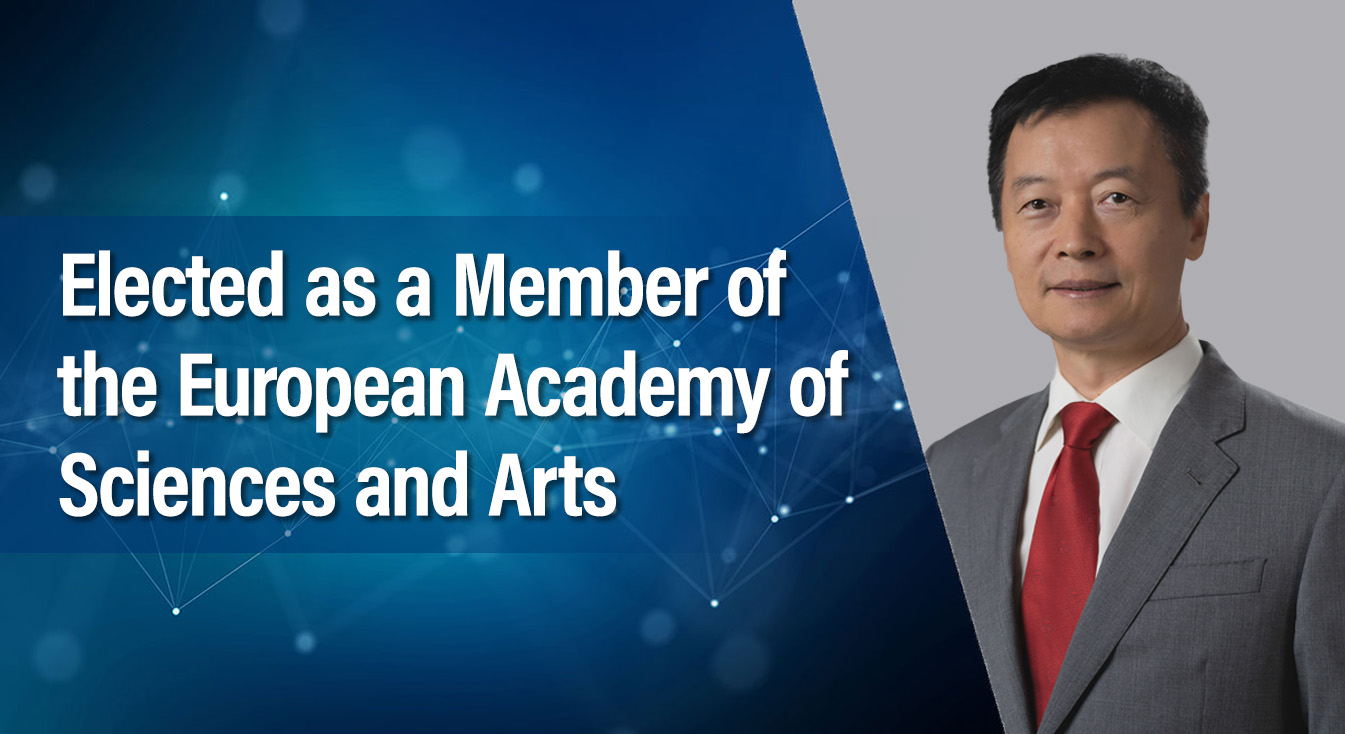 | Fellow of The US National Academy of InventorsAnother good news in December is that Prof. Sam Kwong has been elected as a Fellow of The US National Academy of Inventors, making him the first Fellow elected while working at Lingnan and one of only two Fellows elected from Hong Kong last year.
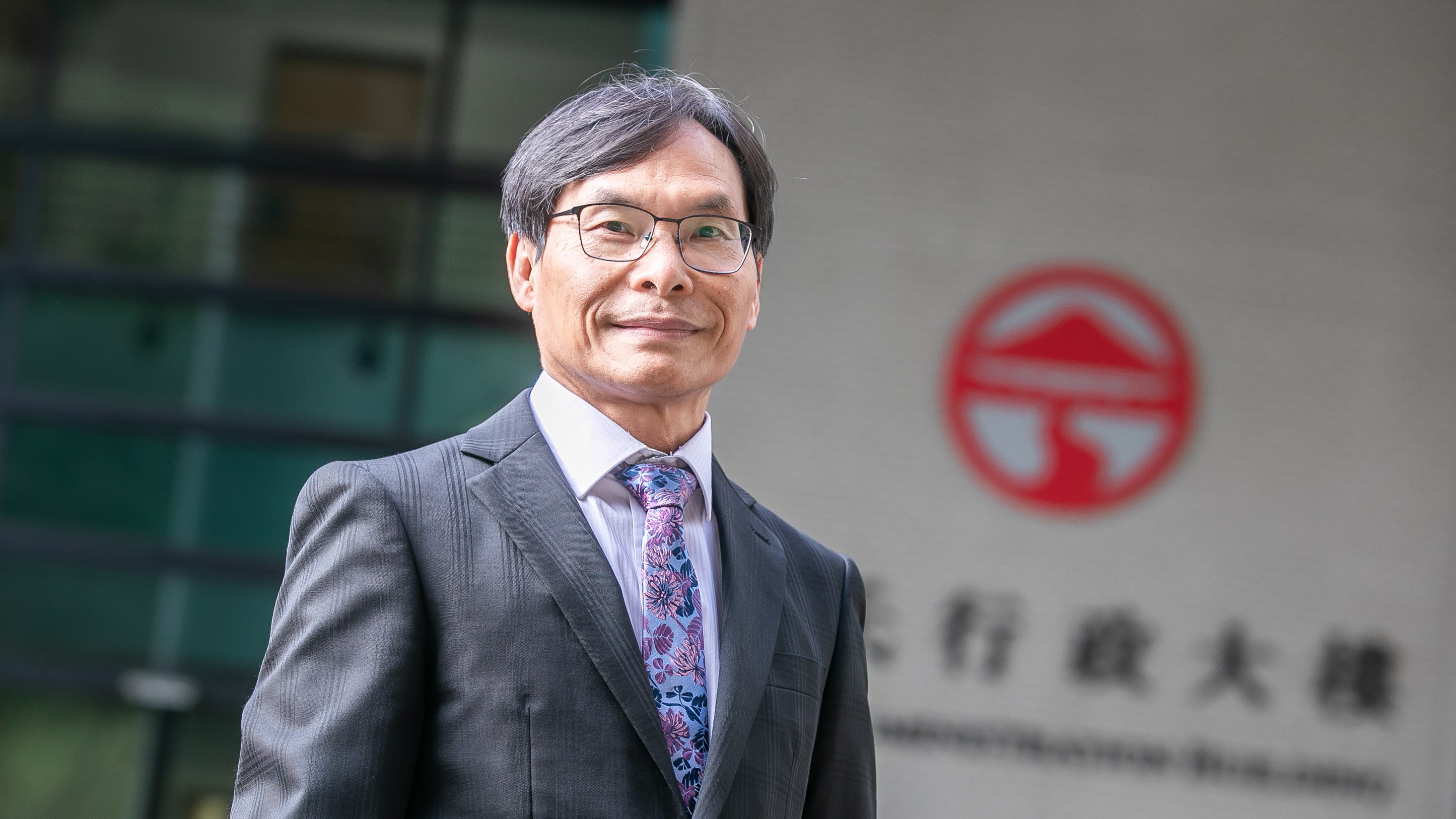 | Elected as a Fellow of HKAESTo make it sweeter, both Prof. Kwong and I have been elected as new fellows of the Hong Kong Academy of Engineering Sciences. Together, we will further contribute to knowledge creation for the advancement of Lingnan, Hong Kong, and the world.
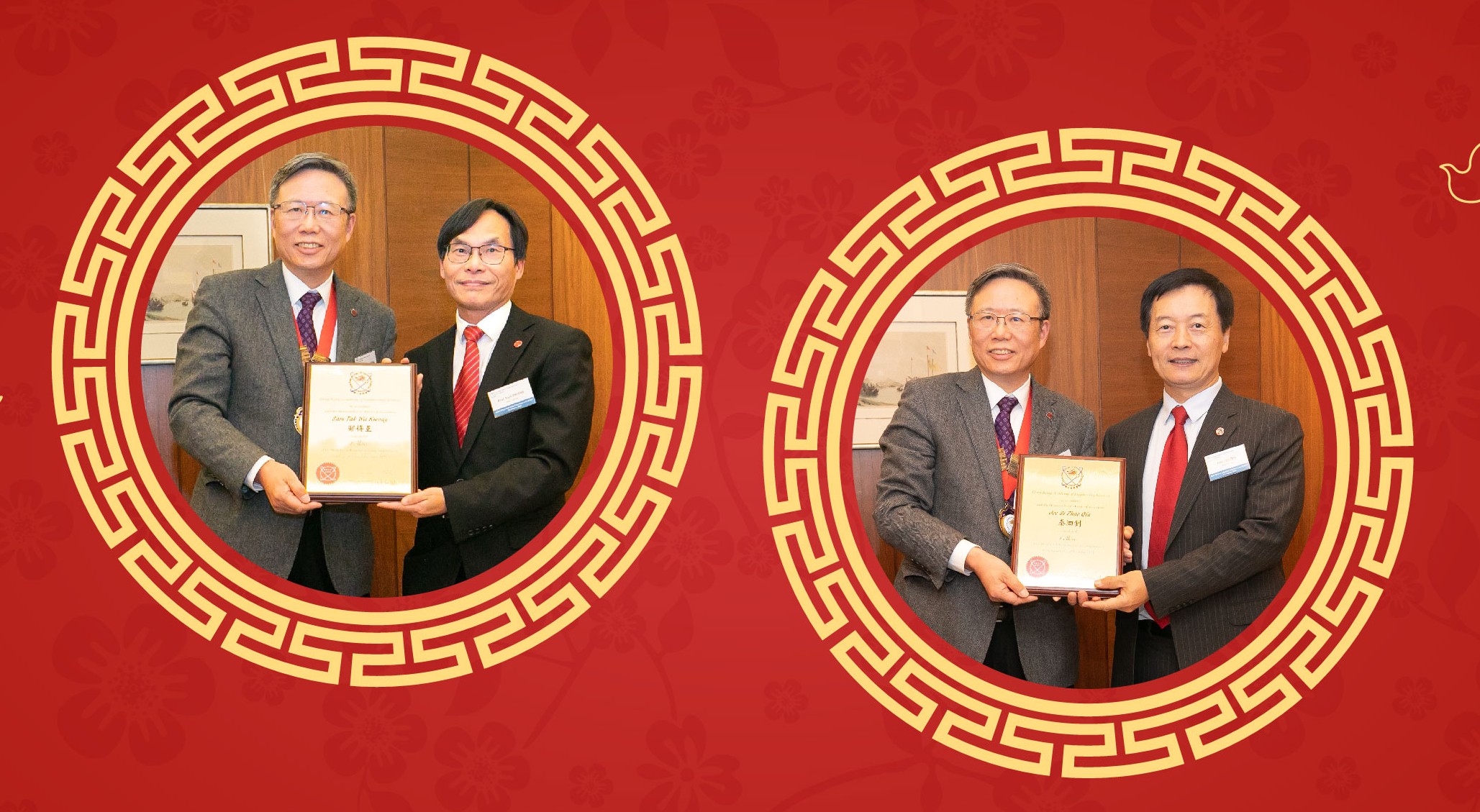 |
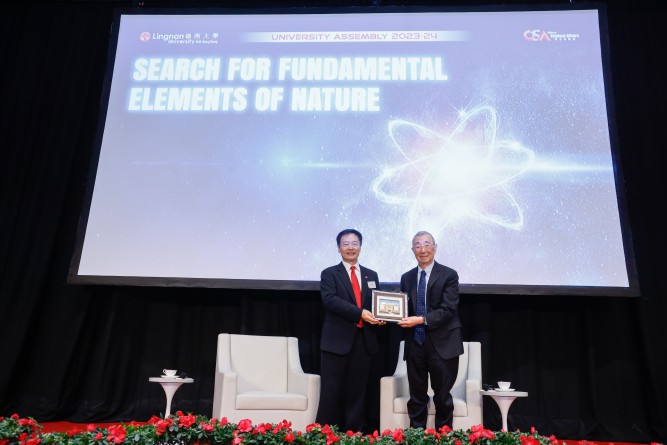
Conferral of an Honorary Doctorate upon Prof Samuel C.C. Ting, a Nobel Prize winner in Physics
Last but not least, on 2 November 2023, we proudly conferred an Honorary Doctorate upon Prof. Samuel C.C. Ting, a celebrated Nobel Prize laureate in Physics. This marks our first-ever Honorary Doctorate recipient who is a Nobel laureate in natural science.
4. Lingnan’s Marching towards a Research-intensive Liberal Arts University
- TPG/Rpg: We are enrolling more than 2500 Tpg/Rpg students last fall, a record high in quantity and quality.
- Research: 2023 RGC GRF/ECS grants are record high; increased by 30% over last year. Our ECS success rate is as high as 47%.
- Research: AIoT research on Smart Traffic Grant (STG): $8.45M led by Prof. Paulina Wong of the Science Unit at SIS and the Institute of Data Science.
- Research: RGC Special Topic Research grant by Profs. Will Hayward and Stefan Kuehner, $7M. The knowledge transfer efforts boosted our cumulative income by 47% to $259 million in 2022/23. This growth underscores our commitment to making a meaningful impact on society.
National Natural Science Foundation of China
In addition, we have been authorized as a new Supporting Institution (Hong Kong and Macau) of the National Natural Science Foundation of China (NSFC), providing expanded research and funding opportunities for our scholars. Our colleagues are now eligible to respond to all NSFC calls for proposals and talent awards for Hong Kong, on equal footing to other leading institutions.
After some hard work, the Innovation and Technology Commission of Hong Kong SAR has included Lingnan as one of the leading institutions to bid for the RAISe+ projects, of which we are actively participating. Each of the grants would be in the tens of millions.
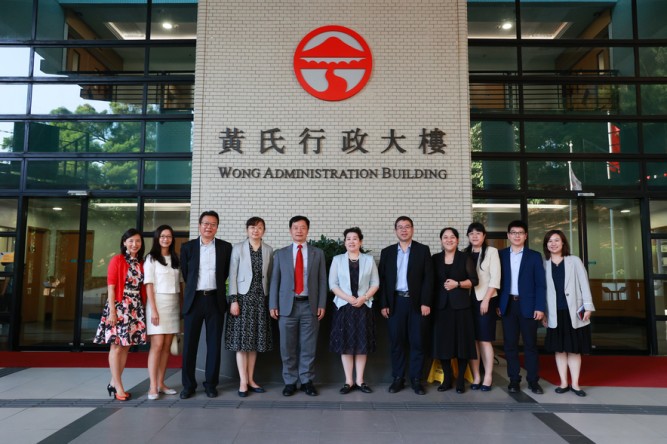
Shenzhen Research Institute the Shenzhen Virtual University Park
Furthermore, I am pleased to announce that Lingnan University has established the Shenzhen Research Institute at the Shenzhen Virtual University Park through an agreement signed with the Shenzhen Technology and Innovation Commission. This establishment will create new opportunities for collaboration and research projects in the GBA.
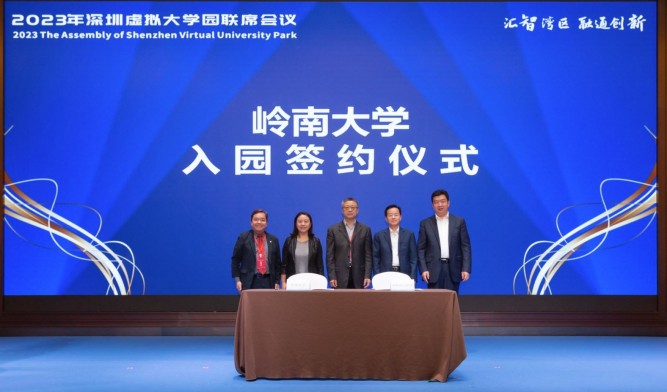
5. University Initiatives and Development
Now, let me highlight the initiatives and developments that we made for Lingnan’s growth and progress.
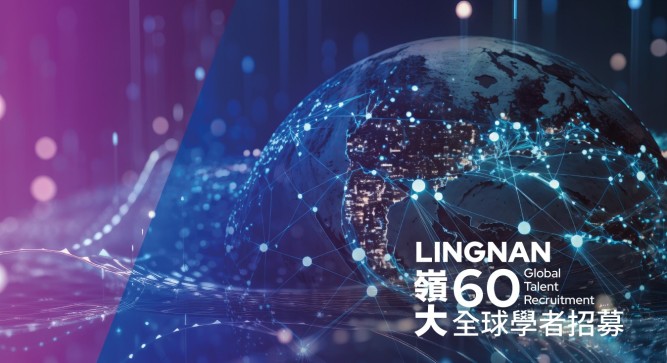
Lingnan 60
As we approach our 60th anniversary of re-establishment in Hong Kong, we are proud to launch the Lingnan-60 Global Talent Recruitment initiative. This program aims to attract 60 outstanding scholars from around the world as tenured or tenure-track faculty members. We are pleased to have Prof. Yao as the first hire under this program, serving as its catalyst and a driving force.
Establishment of the School of Data Science and LUIAS
In line with our commitment to interdisciplinary education in the digital age, we will establish the School of Data Science in a few months. This school will offer a well-rounded education that combines technical skills with critical thinking and problem-solving abilities, enabling students to apply their knowledge to real-world problems.
To contribute to knowledge creation and tackle global challenges, we will establish the Lingnan University Institute of Advanced Study (a.k.a. LUIAS). LUIAS will attract world-class scholars on a fractional appointment basis to work with Lingnan colleagues on our campus. The first LUIAS Distinguished Seminar will be given by Prof. Min Zhou from UCLA, a world-renowned social scientist who is elected to the US National Academy of Sciences and American Academy of Arts and Sciences.
Additionally, we established three new offices last year. The Office of Campus Development and Management (OCDM) was created to meet the growing demand of our campus development and management. The Institutional Research and Branding Office (IRBO) has been set up to enhance rankings, reputation, and branding strategies. The Office of Mainland Development (OMD) was established timely to manage our fast growth in GBA and mainland initiatives.

Lingnan hub, Lingnan@WestKowloon
To support our talent attraction and retention efforts, the Lingnan Hub is being built as a co-living space to enrich teaching and learning experience. It will be put into use in the second half of 2024.
We have also established Lingnan@WestKowloon, a 20,000-square-foot satellite campus at M+ that supports a wide range of teaching and research activities. Through a recent survey it has received highly positive feedback from the users.
We are planning on a new building to enhance interdisciplinary and digital sciences with the largest ever donation being pledged to Lingnan. So, colleagues, I invite you to fasten your seatbelt and ride along with even more exciting developments coming to Lingnan!
However, we are not content with these achievements. We must continuously innovate and improve.
We must improve our World University Rankings, or WUR. In the globally connected world, it serves no good if our excellence makes no impression or impact on the rest of the world. We must be recognized in creating and disseminating knowledge through participating and leading in research and education advances globally. We must beef up our scholarly productivity and international research networks. I am happy to report that we have made a good start in this year’s QS academic and employer nominations, which account for 45% and 50% of the total scores for the QS WUR and QS Asian University Rankings, respectively. It is critical to convert them to actual votes for Lingnan and sustain this momentum for the years to come.
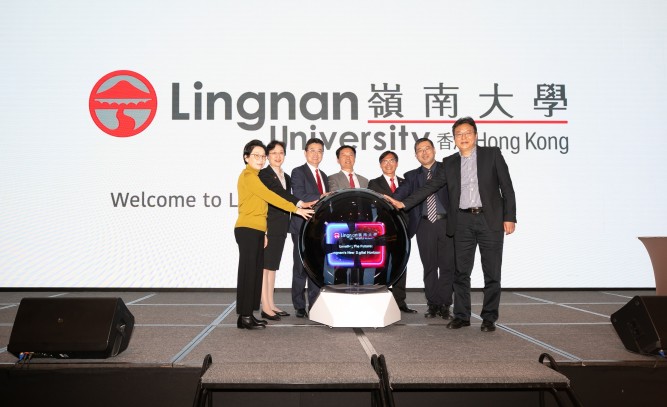
Finally, I am pleased to announce that our new Lingnan website is launched as we enter the Year of the Dragon. This new design of the website is to enhance internal and external communication while showcasing our new image and strength as a leading liberal arts research university. I invite all colleagues to explore the website, utilize its interactive features, and work with your units and the University central to maintain a seamless website at the unit level and the top level. The website is our face to the outside world. It could be detrimental if we leave obsolete or outdated material online.
Concluding
Dear Lingnanians, today, we gather here as dedicated Lingnanians who have committed to the mission of Lingnan University. From our rich history and heritage of more than a century, we draw inspiration and confidence as we envision a world where good ideas flourish and dreams come true. We have achieved great things, and I firmly believe that we can achieve even more. Through knowledge creation and dissemination, let’s uphold our Lingnan motto, "Education for Service" - 作育英才,服務社會, as we re-introduced it as our new tagline.
At Lingnan, we are creating the best interdisciplinary learning environment with liberal arts education for whole person development. Both arts and sciences are to be enhanced with human-centric themes. We strive to educate students with both critical thinking and competitive skills required in the workforce.
At Lingnan, we value the spirit of openness, collaboration, and service. We believe in fostering an inclusive environment that promotes diversity, integrity, teamwork, innovations, ethical behaviors, and professionalism. By embracing these principles, we will not only contribute to the growth of the University, but also inspire our students and fellow colleagues as role models.
Thank you, enjoy the rest of the gathering, and Kung Hei Fat Choi!
Sincerely,
Joe Qin
President and Wai Kee Kau Chair Professor of Data Science



